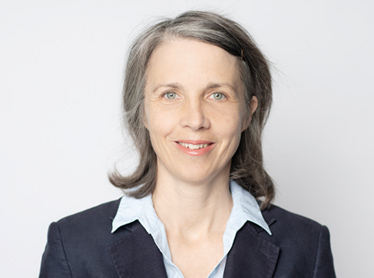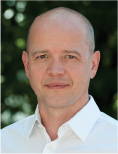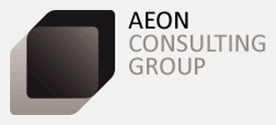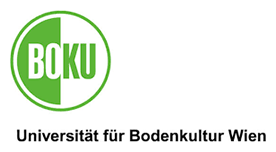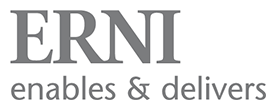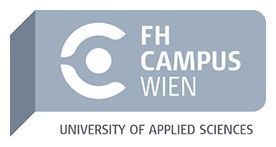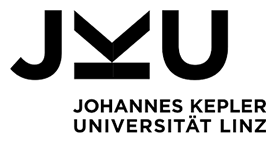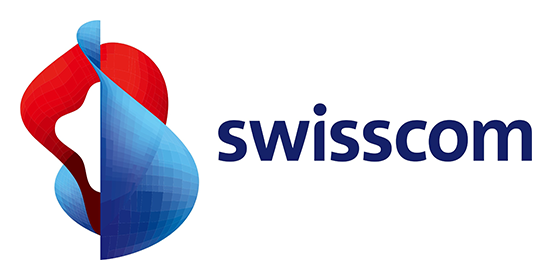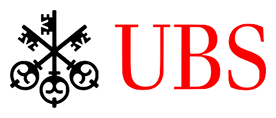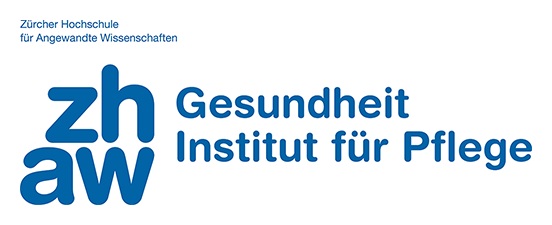Aeon Consulting Group: “In these workshops, laughing together and learning together were not self-contradictory.”
We booked the workshops with Susanne Schinko-Fischli because we wanted to work on our ability to communicate with more than just words, and also because one of our board members had experience with improv theatre. As board members, at first we were unsure of exactly what benefits we could expect, so we went in with very open minds. The days we spent together actually helped us in several ways, not least because as participants we learned how to come closer together in a very refreshing and energising way. In these workshops, laughing together and learning together were not self-contradictory.
What memories and impressions have we taken away from the improv theatre workshop? To experiment, within a safe environment, with how we can deal with different situations, and how we can push the envelope. We also very much appreciated the chance to work on our communicative abilities through entertaining exercises, and without having to listen to a lot of theory.
We have fond memories of the good time we had, and the following aspects:
- a deeper understanding of how to work with our own status
- a better sense of how communication can flow, and what can crop up to block it
- encouragement to believe in our own creativity and spontaneity
Aeon Consulting Group, Ute Langthaler and Erich Wlasak (CEOs)
ETH Zürich: “Most participants found this workshop very interesting as well as useful and applicable to their work environment.”
We enquired about the workshop on Applied Improvisation with Susanne Schinko-Fischli because we wanted to test its applicability to the communication in the academic world.We had 13 participants covering the entire academic spectrum from Master students to Principal Investigators.
Most participants found this workshop very interesting as well as useful and applicable to their work environment. The vast majority was very satisfied with the work of Susanne and expressed their desire to attend a similar, or a follow up type of workshop.
ETH Zürich, Marieke F Buffing (ETH Doctoral student) and Nino Nikolovski (Marie Skłodowska-Curie Actions Fellow at the ETH)
Frequentis: “The workshop with Susanne Schinko-Fischli really got us moving!”
As part of a series of measures aimed at improving our team, I very much wanted to invite all the team members to come together in a workshop setting where we could try to push beyond our normal everyday boundaries together. The aim was to experience together the many different sides of each individual, strengthen our already good foundation of trust, offer everyone the chance to come out of themselves and flourish, and to have some fun together.
The workshop with Susanne Schinko-Fischli really got us moving!
Every single person managed to push the envelope and expand their horizons. We really broke new ground, and our trust in one another demonstrably grew, even during the workshop itself. We have been better welded together as a team ever since. We often think about events from the workshop, and have a laugh together. What’s more, the day inspired us not only to work better together, but also with colleagues from elsewhere in the organisation.
When your team is already on a firm foundation, applied improvisation is a wonderful and effective method to take the next step towards becoming a “High Performance Team”.
Frequentis, Friederikos Kariotis (Director Human Resources)
IBM: “Our trainers have become more creative, more daring, more ready to experiment, more spontaneous.”
Before the workshop, I had already had a lot to do with improvisational theatre, so I already knew the methods well. Since I had gained a lot from them even in my own training sessions, I decided to arrange an Impro Facilitation Workshop with our team of management development trainers. We wanted to use the workshop and methods from improv theatre to improve and expand our trainers’ skills, and bring them closer together as a team.
With this training with Susanne Schinko-Fischli, we were really able to achieve both goals. Our trainers have become more creative, more daring, more ready to experiment, more spontaneous, and they also now use the methods in their own training sessions. Furthermore, the workshop was great for teambuilding, and that is exactly what I had wanted. It’s amazing that we are still talking about that workshop, even though it was a few years ago now.
IBM, Felix Binggeli (GSS Leader Growth Markets)
Meinungsraum: “This workshop changed the way we talk within the company.”
The workshop with Susanne Schinko-Fischli in 2012 was meant as an incentive for my team. We figured it could be good to spend a day acting on stage together, and indeed we ended up in an actual theatre, a small underground one in Vienna, which was really atmospheric. By 2014, the company had made some big steps forward, and had almost doubled in size. This seemed to me another situation where I thought improv might be a good idea, but this time far more precisely focused. I wanted the team to consolidate and to get to know each other better. The workshop was fun, entertaining, and exciting. We got a lot out of it, particularly as regards the team members’ understanding of each other.
I can still remember a really practical example. During the workshop, we did an Elevator Pitch exercise, with each person playing both a customer and a staff member of meinungsraum.at. The task was to briefly introduce the company, and this quickly brought to light something that nobody had seen before: the customer-facing staff had a complete overview of the company; the back-office people, however, simply couldn’t explain what exactly we do and how we do it. After that, we developed our own programme that involved including the back-office staff in customer meetings and presentations.
This has had two lasting effects: first, the back-office personnel learn more about the company, especially about how complicated customers can be, and the extent to which the customer-facing staff shield the back office from that. Second, it changed the way we talk within the company: when we discover fundamental themes such as these, we use the term “improv effect”, and we all know that we’ve come across something important.
Meinungsraum, Herbert Kling (CEO)
School of Design, St. Gallen: “The courses started with a great deal of positive energy, and the participants feel right at home.”
Given that we offer further education in the field of creative design, I naturally wanted to start the courses off with a bang. I had two ideas in my mind: I wanted to sow the seeds in a way that the students would remember, and I wanted to spark good cooperation between the courses. The workshop with Susanne Schinko-Fischli and Claudius Fischli met both of these expectations.
The courses started with a great deal of positive energy, and the participants feel right at home. They are still energised by the workshop, as I could see in their midterm grades. I did not attend the workshop myself; nor was I able to see the films of the role-plays, as we plan to wait until the graduation party – that is, after three years – to show them. In this way, the students and I will be equally excited and certainly surprised when we see the films.
School of Design, St. Gallen, Kathrin Lettner (Head of Further Education, School of Design)
University of Liechtenstein: “Now I feel much more comfortable and secure while I am holding presentations.”
I am standing on both feet!
“Week by week I started to feel more relaxed and comfortable while I was standing in front of these people. I noticed that I wasn`t hiding my fears deep in my heart anymore but that I wanted to stand with them in front of other people and show them to these people, so that they could help me overcome them. I was glad of getting a feedback and that they were showing me my mistakes. These feedbacks really helped me to see myself. They helped me to notice that I wasn`t showing the real Eda while I was presenting. The real Eda in her normal life, when she is with her friends or family, would never be scared of standing in front of them and talking loud and brave. The real Eda would never be insecure of herself, of the way she might look or sound.
This was one of the biggest turning points in my life. To notice that I was disguised in another personal being while I was presenting. And I didn`t want this. I didn`t want to become another person. I just wanted to be myself. Why shouldn`t I be able to hold presentations like the others in my class? Why should I feel precarious of myself?
I`ve literally learned being myself in this class. It may sound strange that a person finds a way of fighting the personal fears through a course in the university but that`s true.
Now I feel much more comfortable and secure while I am holding presentations.
I can say that through this course I grew older and that I had the chance to fight that inner me that was always telling me to be afraid of presentations and afraid of strangers. I`ve learned to fade out this voice and concentrate myself on my presentation.
This course helped me to see the fake me that wrapped me up while I was presenting and prevented me from being myself.
So thank you Susanne for helping me to show the real me. I appreciate it a lot!
University of Liechtenstein, Eda Demir (Architecture Student)
Zurich University of Applied Sciences: “This workshop allowed the participants to expand their professional abilities.”
The ability to advise and train patients and their relatives, along with representing the speciality in interprofessional teams are all principal tasks for any care expert. This means that presentation skills are essential to them.
This workshop with Susanne Schinko-Fischli and Claudius Fischli gave the participants not only the chance to expand these competencies through direct experience with a variety of improvisation situations, but also to reflect on their own behaviour and how that influenced themselves and the group.
Reflection supports critical thinking, and is an important element of professional behaviour. It expands our limited perception, and the resulting awareness of certain behaviours enables us to modify them in the future.
This workshop allowed the participants to expand their professional abilities, which are so necessary to the central challenge of care, that is, to understand and address the whole person.
Zurich University of Applied Sciences, Sabin Bührer (Head of Studies MAS in Patient and Family Education)
